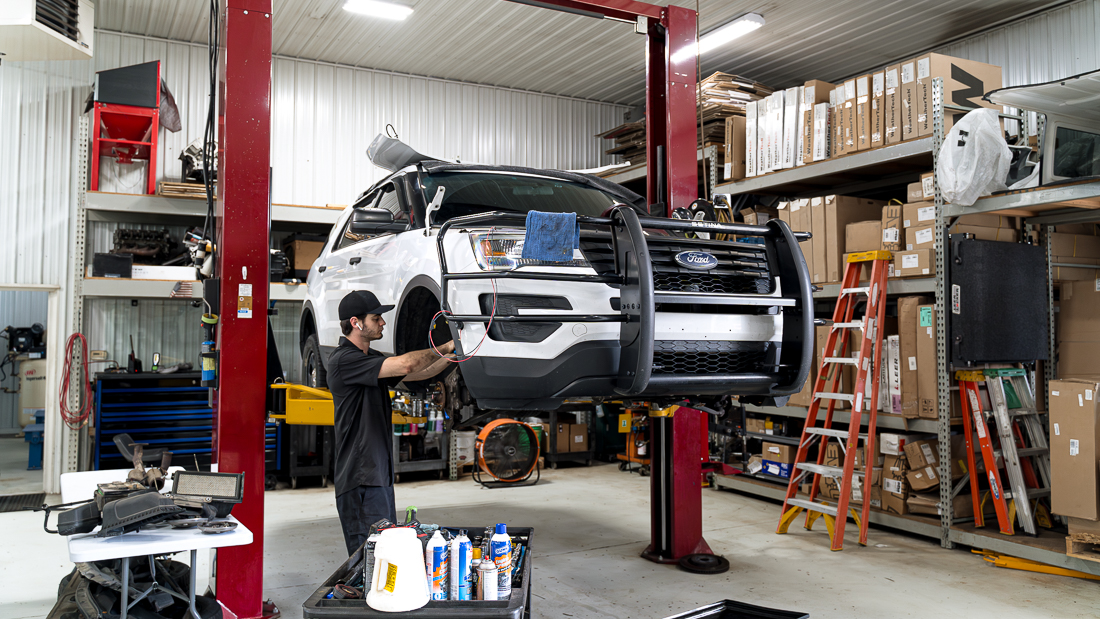
Driveline Service
Schedule Service
Expert Driveline Inspection and Maintenance
The driveline encompasses the motor, driveshaft, axles, differentials, and associated parts that transfer power from the engine to the wheels. Regular maintenance involves inspecting these components for wear, leaks, and damage, as well as performing tasks such as fluid changes and lubrication to ensure smooth operation.
Our expert technicians will check for any unusual noises, vibrations, or fluid leaks, as these can indicate potential issues that may compromise the drivetrain's functionality. Routine maintenance and thorough inspections reduce the risk of unexpected breakdowns, and let you drive anywhere with confidence.
Best Driveline Maintenance
-
Motor Maintenance
Motor maintenance includes checking fluid levels, inspecting for leaks, performing fluid changes or flushes, and checking and replacing spark components. Keeping the motor oil clean and at the proper level is crucial for smooth power, optimal power transfer, and preventing premature wear on components.
-
Driveshaft and Axle Inspections
Driveshaft and axle inspections involve assessing the universal joints on the driveshaft, inspecting CV joints on axles, and ensuring proper alignment. Any issues with the driveshaft or axles can lead to vibrations, unusual noises, or compromised power transfer, making regular inspections essential for driveline health.
-
Differential Maintenance
Differential maintenance is crucial for the proper distribution of power to the wheels. Our technicians will inspect the differential fluid for contamination and leaks, and perform fluid changes or flushes. We can also perform major repairs when necessary, but with regular maintenance your car's differential should last as long as the vehicle itself.
-
Lubrication and Greasing
Regular lubrication and greasing of driveline components is essential for minimizing friction, reducing heat buildup, and preventing premature wear. Grease is applied to universal joints, CV joints, and other moving parts. Adequate lubrication ensures smooth operation, extends the life of driveline components, and helps prevent issues such as excessive noise or vibrations while driving.
Common Driveline Questions
-
Can I grease driveline components myself, or should it be done by a professional?
While some driveline components may have accessible grease fittings for DIY greasing, it's often recommended to have this task performed by a professional during routine maintenance. Professionals have the expertise to use the right type and amount of grease, ensuring proper lubrication without over-greasing, which can lead to issues. If you're unsure about greasing your driveline components, fill out a contact form today, and we can get you taken care of! -
How often should I check my differential fluid?
Differential fluid should be checked as part of your regular vehicle maintenance, typically during oil change intervals. It's recommended to inspect the differential fluid every 15,000 to 30,000 miles or according to your vehicle manufacturer's guidelines. Regular checks involve assessing fluid levels, ensuring proper lubrication, and identifying any signs of contamination or leaks that may indicate a need for differential maintenance. -
What are the signs of a failing driveshaft or axle?
Signs of a failing driveshaft or axle include vibrations, clunking or clicking noises during acceleration or deceleration, and uneven tire wear. If you notice any of these symptoms, it's advisable to have your driveshaft and axles inspected promptly. -
How important is it to address driveline issues promptly?
Promptly addressing driveline issues is crucial for several reasons. Ignoring symptoms like vibrations, noises, or fluid leaks can lead to further damage and increased repair costs. Driveline components work in tandem to transfer power and ensure the vehicle's proper functioning, and a neglected issue in one part can affect the entire system. Additionally, driveline problems can compromise safety and drivability. Timely maintenance and inspections help catch issues early, preventing potential breakdowns, enhancing overall performance, and extending the lifespan of driveline components.
Contact form
Contact Form Services




